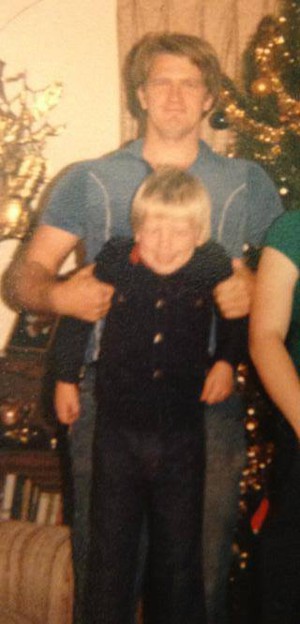On the morning of Saturday, October 14th at New York Comic Con, I sat down to chat with author Christina Henry about her newest book, Good Girls Don’t Die. Releasing today, November 14th from Ace/Berkley Books, an imprint of Penguin/Random House, the novel is a treasure chest of the unexpected. Essentially three books in one, this novel has something for everyone.
“A sharp-edged, supremely twisty thriller about three women who find themselves trapped inside stories they know aren’t their own, from the author of Alice and Near the Bone.
Celia wakes up in a house that’s supposed to be hers. There’s a little girl who claims to be her daughter and a man who claims to be her husband, but Celia knows this family—and this life—is not hers…
Allie is supposed to be on a fun weekend trip—but then her friend’s boyfriend unexpectedly invites the group to a remote cabin in the woods. No one else believes Allie, but she is sure that something about this trip is very, very wrong…
Maggie just wants to be home with her daughter, but she’s in a dangerous situation and she doesn’t know who put her there or why. She’ll have to fight with everything she has to survive…
Three women. Three stories. Only one way out. This captivating novel will keep readers guessing until the very end.”
When I was sitting down to write this copy, the song “Big Girls Don’t Cry” by Frankie Valli was echoing through my head, and if you know the song then you know how high and loud it rings. As it played ad nauseam from my internal jukebox I was struck by something: it’s a man singing. It’s a man bellowing his expectations on the behavior of the women around him, and it seemed very fitting to my takeaways from this book. This book is a damning indictment of man’s imposition of will on his environment. It is microaggressions writ large, dominance to the extreme. Man created saws and sandpaper to whittle the shapes around him to fit his design, and while that is welcome in the home and in the car, it is less so in social situations and hierarchies. If you’re thinking THE STEPFORD WIVES or DON’T WORRY DARLING, you’re on the right track.
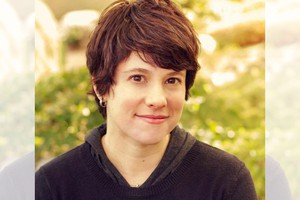
Eric McClanahan - Are you ready to get into it?
Christina Henry - Yes! You’re audio only, thank goodness!
EM - Yes, don’t worry. Let your hair down.
CH - Awesome!
EM - So I got the email a month ago and they sent me Good Girls Don’t Die. I read it, I loved it. When I was looking you up, I noted you’re so prolific. You’ve written so much, and I feel bad that I only have this one cornerstone to focus on. However, it, itself, contains multitudes, so I think we have plenty to talk about. Very obviously, I can see that it’s a story about manipulation and oppression. I also believe there’s some subtext to that throughline and I’d like to get that straight from you.
CH - I think it’s a subtext that’s in a lot of my work. This is interesting because I was actually just on a book tour in Germany and the moderator at one of the events was really quite perceptive and he said, in reference to one of my previous books, Near the Bone, and he said “This book reads like you’re an angry liberal” and I said “Guilty.” So, yes, there are a lot of things that I think seep in subconsciously to my work, certainly to Good Girls Don’t Die. I’m trying to figure out a way to talk about this without giving away the end, which we certainly don’t want to do. I can say that I’m always feeling that women have to endure these aggressions, small and large, that it’s so hard sometimes to be a woman. In particular, that it can be very hard to be a woman in any kind of public space, especially an online space, which I think is part of what’s in the book. There’s… I’m not sure if you’re looking for something specific, here. If you are, just tell me.
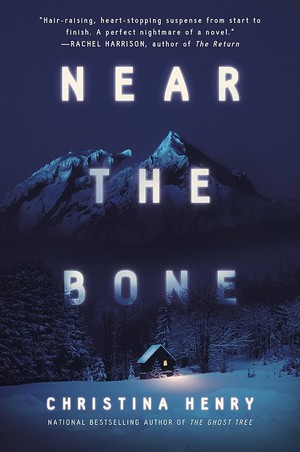
EM - No, it’s your work, as I said, and I want to hear it straight from you.
CH - The thing is, when I write a book I’m not consciously thinking of these things. It’s the kind of thing that you see afterward, when you’re done writing. Because I don’t plot - I just start writing, usually from some image or question or impulse that’s not fully formed. In the case of Good Girls Don’t Die, it was the depths of Covid-times when we were all at home and I was reading a lot of cozy mysteries because they were nice and comforting, and I thought “Oh, well I could write one of these,” because when you read enough of them you can see the formula. And there’s nothing wrong with that - it’s part of the expectation of the genre. So thinking “I could probably write a cozy,” I started writing this thing, which immediately took a left turn, which is something that always happens with my work, but I just followed it. I just follow where they take me.
EM - Now I’m led to believe that your Alice series has that same diversion where you start with the established IP and then you allow it to go off the rails. Where do you think that tendency comes from?
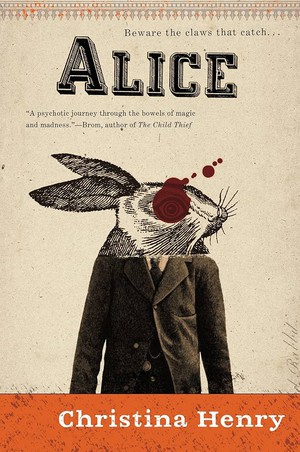
CH - I think I’m subversive by nature, so let’s just start there. Whatever people expect from me I don’t want to give them. I want them to say “I didn’t expect that.” That’s also part of what keeps it interesting for me. I could write a conventional novel within conventional genre expectations but why do that when you can have fun?
EM - I agree. The page can take us anywhere and it’s fun to see where it goes. There are three strong central characters throughout the book, and all of them have taken charge of their agency throughout their individual stories. Was it important for you when building that foundation that your readers could see something of themselves in there?
CH - Yes, I think that there are all kinds of strength and what bothers me sometimes is that the idea of the strong woman in stories is, no shade on Black Widow, but a Black Widow-type character: she fights like a man, she talks like a man, but she looks super sexy while she’s doing it. And that’s probably my least favorite trope of all time, and I really want readers to see that there are all types of strength. Sometimes endurance is strength, sometimes overcoming your challenges is strength, sometimes punching the person in the face is strength, and there are many different ways of being “strong.” What I really liked about all these characters was less their strength and more their ingenuity. I’m drawn to people who figure out their situation as opposed to those who just stand around asking “what do we do?”
EM - Thrusting these characters into worlds that are somewhat familiar yet alien to them - was this a direct response to Covid?
CH - I don’t know that it was a direct response, because, again, you’re not always aware of what’s seeping in subconsciously, but there is this idea in the book that recurs and it’s such a confrontational thing and it’s something that I’ve experienced on a personal and superficial level. Let me tell you a boring story.
EM - Please.
CH - On a superficial level, I came home one day, had a really hard day, put a beer in the freezer to chill, left it in there for a little bit, went to get it out, it slid out onto the floor and shattered. So I posted a little tweet, like, “Had this really sucky day, then put this beer in the freezer and it fell out on the floor and the glass shattered” and then somebody, a man, replied “post a picture of your beer,” like I have to prove that I had a beer fall out of the freezer, for you to relate. That everything has to be verified, somehow, or you don’t believe it.
EM - Like you have to earn their empathy?
CH - Yes! Like, first of all, it’s just supposed to be a little joke. Secondly, I have a three-year-old, so I’m not going to leave glass on the floor while I go to get my camera phone. So, those kinds of little things I think I was really feeling when I was writing this, especially because during Covid, everybody was really online, so when you encountered people in public I feel like there was a lot of aggression, because people were tense. I think all those little things were kind of building up subconsciously and seeping in as I was writing this.
EM - So the book is described, on its jacket, as a “trippy, sci-fi…” [Christina Henry’s eyes widen] Exactly! I didn’t quite agree, but is that a moniker that you think fits this book?
CH - Well, I think no monikers really fit because my books are often more than one thing. This book, especially, is a little bit of mystery, a little bit of horror, a little bit of YA dystopia, it’s overall a thriller. The thing is many books that are classified as sci-fi often aren’t, like The Girl in Red is classified as such but it’s actually about the Pandemic, despite the fact that I wrote it before the Pandemic. [chuckles nervously]
EM - I’m not blaming you.
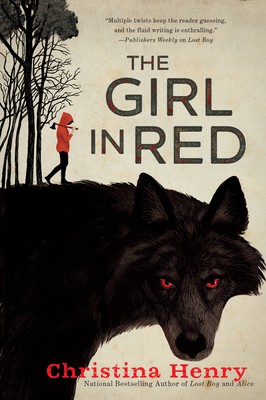
CH - But I think that those kinds of terms are really marketing terms, so people know where to place the book in store and the sales team knows how to sell it. You want the book to find its audience and I understand that. But from my point of view, I just want to write whatever I want to write and if it’s more than one thing then it’s more than one thing, and that I have a core group of readers that like that and know that what to expect from me is not to expect anything.
EM - Yes, I looked at some feedback online and that was what a lot of people said, and they were all very pleased, so that worked out well. So I have to ask this question because I have an author in front of me: what is the allure of the cozy mystery? Because there’s still dead people!
CH - Yes!
EM - There’s still murder, but people are like “Oh, this is so fun!”
CH - Yes! It’s so weird, right? And I think that was something I was trying to get across in that section of the book because there’s always this brutal murder in the story! But I think what people really enjoy is the puzzle, and the structure of the cozy mystery really has a very distinct puzzle structure, where you’re presented with the body, and as I mentioned in the book, it's often the least favored person in town, the one that nobody cares if they die, because it’s a small town and this is the one jerk in their midst so it’s great that this person is now dead. Then you have, in a lot of cozies, the amateur detective, right? The fun of imagining that you’re the amateur detective that can solve this crime. Though I will say for myself that it infuriates me when they do really dumb things, like go up to a suspect and say “I have no authority but let me question you about your whereabouts.”
EM - Like “I’m certain you’re a murderer but let’s talk.” Now, dystopian futures were all the rage pre-Pandemic, then we had a Pandemic, which kind of was our dystopian future played out. Do you think it killed the genre?
CH - I don’t know if it killed the genre, because I think there are still people who like those kinds of stories and actually, weirdly, my book The Girl in Red, had kind of a second resurgence during the Pandemic, though you’d think people wouldn’t want to read that kind of material. But some people did, apparently it comforted them that fictional pandemics were actually worse than the one that they’re experiencing.
EM - That’s what they were looking for. Like, “Oh, this could be way worse!”
CH - Yeah. So, I don’t know if it killed it but it is experiencing a lull right now. You see this a lot, in publishing, something becomes big then the market gets flooded because the publishers think “people want this” so they buy a lot of books like that then there’s so much on the market that nothing can break through, and then when that happens there’s a valley.
EM - Yeah, it plateaus and then [blows raspberry].
CH - Yeah, that happened with urban fantasy about ten years ago, there was all this urban fantasy on the market, and in fact I had an urban fantasy series, and you could sort of see it bottoming out. You could go to the fantasy section and it was all urban fantasy, so people don’t even know where to start because nothing looks distinct from the others, so that can be a challenge. But things ebb and flow. I think dystopias will come back, maybe when we’re a little further away from the pandemic. Ten or fifteen years down the line, maybe.
EM - Yeah, we need some distance.
CH - Yeah.
EM - Now, you are purposefully unpredictable, but what can we expect from you next?
CH - Well, my next book that’s coming out in the spring is called The House that Horror Built about a woman who is a house cleaner for a reclusive horror director who has all kinds of props and things in his house. And that’s all I’m going to say about that.
EM - Have you met John Carpenter? You know he’s here.
CH - I have not met John Carpenter. I would die if I met John Carpenter. I would die on the spot. He’s one of my absolute favorites. Yeah, you shouldn’t have told me that. [laughs]
EM - Yeah, my bad. Well, that’s our time. Thank you so much for talking to me.
CH - Thank you for coming.
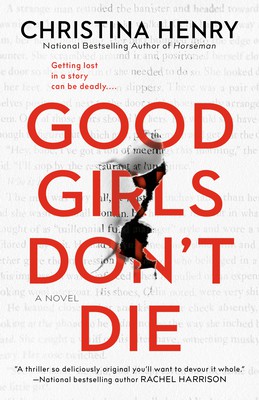
Good Girls Don’t Die is available today at all major book retailers, as well as Henry’s extensive back catalog. If you’re a fan of cozy mysteries, dystopian futures, or cabin-in-the-woods horror, there’s something for you here. If you’re a fan of all three, this book was written expressly for you. As an author that cites John Carpenter as an influence, you’re in for a treat.
Until next time, take care.
-McEric, aka Eric McClanahan-